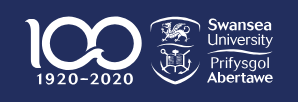About International Accounting And Finance, Msc in Swansea University
Do you have a head for figures and your heart set on a career in accounting? It’s a sought-after profession, with high job security, good rates of pay and lots of interesting roles to choose from within a variety of sectors.
The MSc Accounting and Finance course at Swansea University will help you develop an advanced and in-depth understanding of key accounting and finance topics that will fast-track your future career prospects.
You don’t need a background in accounting or finance to study this one year conversion course. It’s designed to enhance your undergraduate study and accelerate you into your chosen profession anywhere in the world.
The programme is accredited by the Association of Chartered Certified Accountants (ACCA) and includes exemption from up to seven ACCA Fundamental exams. This is based on your prior learning and prevents you having to study the same topics you’ve already been taught.
The School of Management also has strong links with the Chartered Financial Analyst (CFA) Institute, the Chartered Banker Institute, the Chartered Institute of Management Accountants (CIMA), the Chartered Institute for Securities and Investment, and the Institute of Chartered Accountants in England and Wales (ICAEW). This close affiliation with professional bodies will enhance your career prospects and give you the edge to thrive in today’s competitive world.
WHY ACCOUNTING AND FINANCE AT SWANSEA?
- A full conversion course that may be completed in a single year
- Open to applicants with no existing experience in accounting, finance or business
- All modules are taught by our world-class faculty who have industrial and academic knowledge
- Professional body accreditation, which can help to accelerate your career
- Swansea University was voted What Uni? Student Choice Award 2017 Winner - Postgraduate study
- Swansea is joint 1st in Wales for international ranked research (Research Excellence Framework 2014)
- Swansea is 1st in Wales for world-leading impact - 60% at 4-star level (REF 2014)
- Based in the £22 million School of Management building on the new Bay campus
For applicants whose first language is not English we require a minimum IELTS score of 6.0 (or equivalent).
Typically we recognise a 75% average in Standard XII .
This can be awarded by:
- Central Board of Secondary Education (CBSE)
- Council for the Indian School Certificate (CISCE)
- National Institute of Open Schooling (NIOS)
- Various state boards
- Autonomous schools
Actual grades required will vary depending on exam board.
Swansea University Highlights
| Type of learning |
On-campus |
| Type of degrees |
Bachelors, Masters |
| No. of campuses |
2 |
| Application Season |
Various intakes round the year |
| On-campus housing |
Available |
| Financial Aid |
Available as Scholarships and Awards |
| Work Study |
Available for international students |
Swansea University Average Tuition Fees And Other Expenses
An estimated budget for aspirants consisting of expenses like accommodation, travel and stay required to study in the UK is as compiled below. Note that an annual budget for undergraduates and graduates of the university is approximately 7500 GBP and 9500 GBP, respectively.
Swansea University Tuition Fee
The tuition fees vary from course to course for both graduate and undergraduate degrees. Fee for some of the course is:
- Social Work & Graduate Entry in Medicine (GEM): 9,000 GBP.
- Nursing, Midwifery, Paramedic Science and Healthcare courses: 9,000 GBP.
- Graduate Diploma in Law (GDL): 7950 GBP.
Swansea University Cost of living
Other expenses apart from the tuition fee are as mentioned below.
Private Residence Costs
| Expenditure |
Cost per week |
Cost per academic year (40 weeks) |
| Rent |
80.00 – 110.00 |
3200.00 – 4400.00 |
| Meals |
- |
2,000 to 3,000 |
| Contents Insurance |
2.75 |
110.00 |
| Broadband |
4.60 |
184.00 |
| Travel Costs |
9.00 |
360.00 |
Swansea University Course Costs
| Course Costs |
Costs per Week |
Cost per academic year (40 weeks) |
| Books |
8.36 |
334.40 |
| Printing and Binding |
1.10 |
44.00 |
| Course Equipment |
1.75 |
70.00 |
| Field Trips |
1.35 – 30.00 |
54.00 – 1200.00 |
